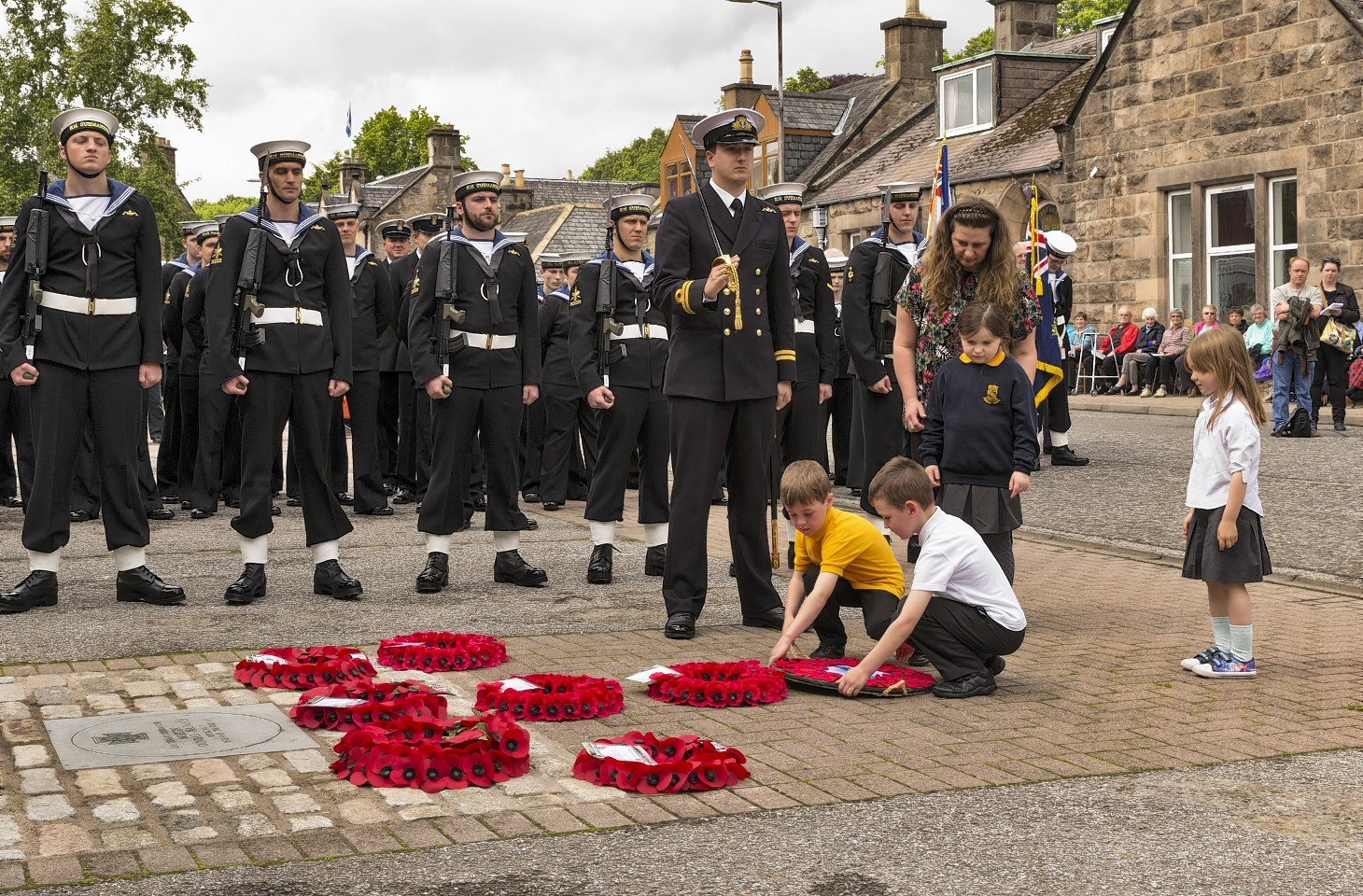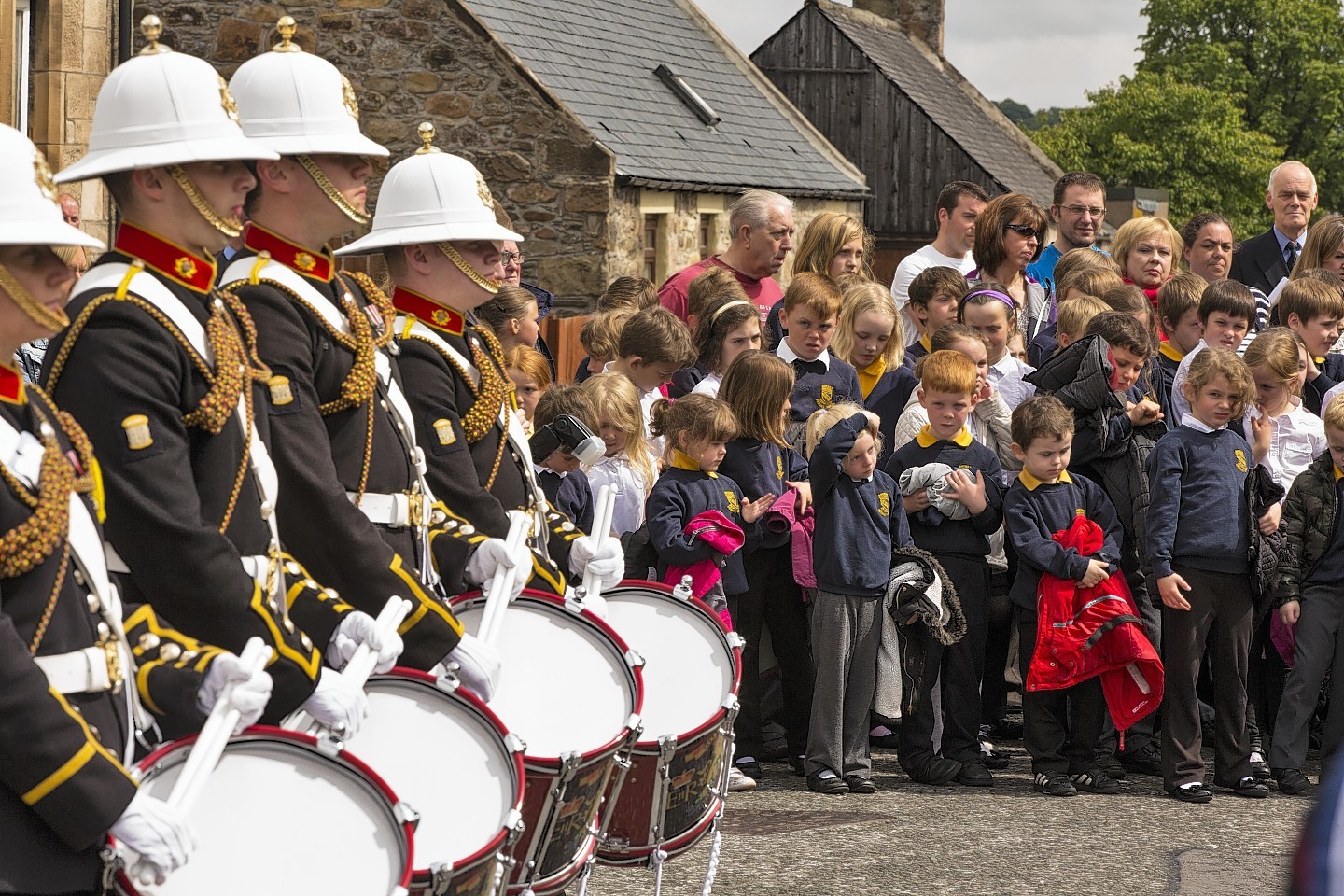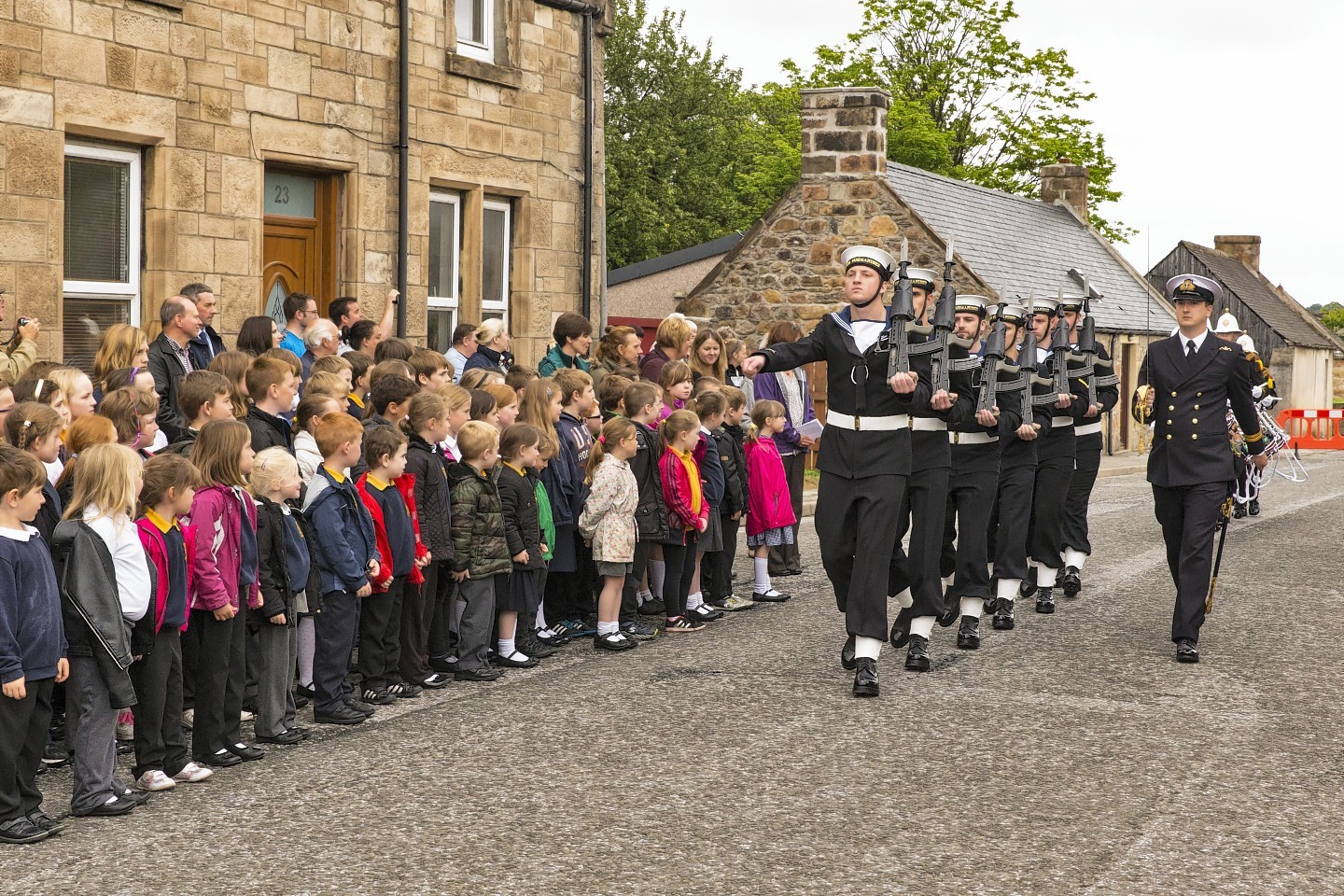A Speyside town was lined with military personnel yesterday as one of its proudest sons was honoured for his heroics during World War I.
The submarine innovations of Admiral Sir Martin Dunbar-Nasmith have been hailed as a deciding factor in securing the allied victory in the Great War, and Rothes residents gathered to celebrate his efforts 100 years on.
In 1915 he was awarded the Victoria Cross following a series of daring raids during the Dardanelles campaign and yesterday marked the centenary of its notification in the press.
More than 50 members of the Royal Navy, including several from the submarine branch, marched through the town to the war memorial, where a commemorative paving stone bearing the admiral’s name was unveiled.
His son, 88-year-old architect professor Sir James Dunbar-Nasmith, spoke of his pride at the occasion.
He said: “It was very gratifying to see so many people turn out for the service, it was a wonderful occasion for the family.
“A tremendous amount of people were there – some of whom could remember my father from when he lived in the area.
“And I was surprised by how much some of the naval people who came knew about my father, it’s clear he is still quite a significant figure in the service even today.”
Pupils from Rothes Primary School, who had recently completed a project on the admiral, also took part in the ceremony, laying wreaths in his honour.
The Lord Lieutenant of Moray, Lt Col Grenville Johnston, spoke about the admiral’s military legacy.
Royal Navy representatives were led by Commodore Mike Walliker, the deputy rear admiral, submarines, based at Faslane, who said Admiral Sir Dunbar-Nasmith’s war record continued to inspire budding submariners today.
The admiral was presented with his VC medal by King George V at Buckingham Palace in January 1916.
He went on to have a distinguished naval career and also served during World War II, before retiring in 1946 and living out the remainder of his days at Glen Rothes.
He died in 1965, aged 83, and is buried at Elgin cemetery.


